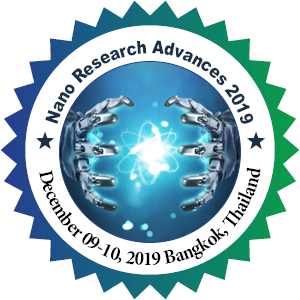S.M.Sivakumar
College of Pharmacy, Jazan University, Jazan, Kingdom of Saudi Arabia
Title: Physiochemical characterization of Sodium selenite nanoparticles targeting against hepatoma
Biography
Biography: S.M.Sivakumar
Abstract
Targeting drugs to the actual cellular site especially for can cancer is still a challenge in pharmaceutical research. Worldwide hepatocellular carcinoma (HCC) is the fifth most common cancer that affects approximately half a million persons every year, which leads to the third leading cause of cancer-related death. HCC characteristically occurs due to chronic viral hepatitis B and C infection is the most important etiologies. In HCC tumorigenesis, several oncogenic pathways have been identified. Several molecular subtypes that interplay between surrounding tissue and tumor have been investigated. These studies suggested that hepatocellular carcinogenesis is a complex process involving hepatocyte injury, inflammation, proliferation and genomic instability leading to alternations in several oncogenic pathways. Activation of several signaling pathways, both in cirrhotic tissue and in overt HCC, has been implicated in human hepato carcinogenesis.Sorafenib is the first oral agent to show activity against human hepatocellular carcinoma but sorafenib causes multiple human dose-limiting toxicities although the clinical application of sorafenib has shown good tolerability in the studied populations. As a consequence, reducing the overall dose of sorafenib is therapeutically more important rather than conventional dosage form. The present study demonstrating the successful sodium selenite nanopartccle injectable formulation as a better therapeutic agent for hepatoma.

